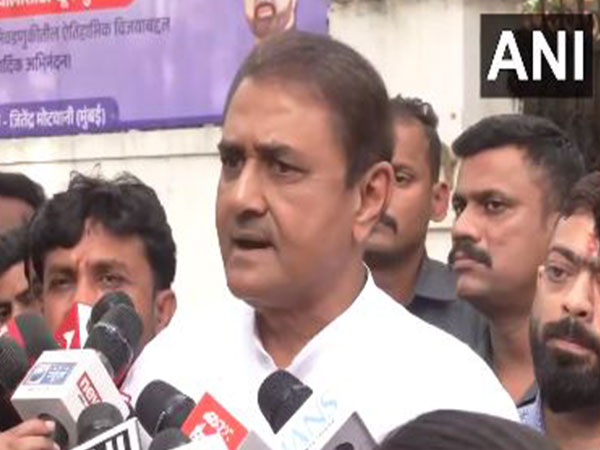. |
Updated: Nov 25, 2024 01:24 IST
Mumbai (Maharashtra) [India], November 25 (.): National Congress Party (NCP) working president Praful Patel on Sunday announced that Ajit Pawar has been elected as the leader of the party.
This announcement was made during a meeting with the party’s newly elected MLAs. Ajit Pawar, who now leads a faction of the NCP that broke away from Sharad Pawar’s leadership, was formally chosen as the party’s leader in the meeting.
“Today a meeting of the NCP’s newly elected MLAs was held. We welcomed all the MLAs and we also elected Ajit Pawar as the leader of the party…We also appealed to him to take further decisions regarding the party…,” he said.
Meanwhile, when asked about the Maharashtra Chief Ministerial post, Patel stated that the decision would be made in a meeting involving all alliance partners.
“I am not aware of any program related to the Oath-taking ceremony of the CM… The decision regarding this will be made in a meeting of all three parties (Shiv Sena, NCP, and BJP),” he said.
The ruling Mahayuti alliance secured a decisive victory in the Maharashtra assembly elections. The BJP-led Mahayuti alliance registered a smashing victory, carrying its allies–Shiv Sena and NCP–with its momentum.
The BJP won 132 seats, Shiv Sena, led by Chief Minister Eknath Shinde secured 57 seats, and the NCP faction led by Deputy Chief Minister Ajit Pawar claimed 41 seats. The Maharashtra assembly has a total of 288 seats.
In contrast, the Maha Vikas Aghadi (MVA) suffered a major setback. The Shiv Sena (UBT), led by Uddhav Thackeray won only 20 seats, Congress managed 16, and the NCP (SCP) led by Sharad Pawar won just 10 seats.
The BJP demonstrated an impressive strike, winning 133 of the 148 seats it contested in Maharashtra. The party’s allies, the Shiv Sena and NCP factions, also performed well. The Maharashtra assembly elections were held on November 20.
Prime Minister Narendra Modi celebrated the Mahayuti alliance’s victory at the BJP headquarters, commending the people of Maharashtra for rejecting “negative and parivarvad politics.” (.)

